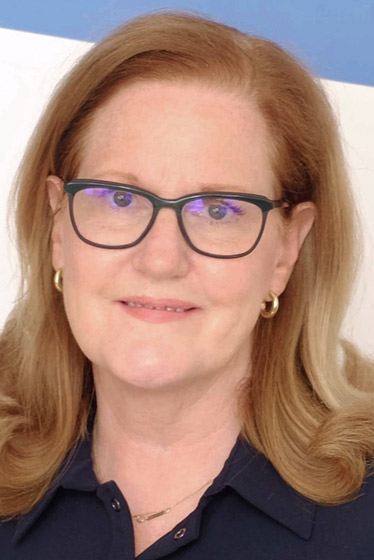

 The ways in which the Internet is embedded in our daily lives are too varied and numerous to catalogue. The Internet delivers information, access to goods, services, education, banking, social interaction and, increasingly, work space. The global pandemic has only heightened our dependence on the online world, which is why efforts to ensure that the Internet remains a trusted and secure environment are more important than ever. more
The ways in which the Internet is embedded in our daily lives are too varied and numerous to catalogue. The Internet delivers information, access to goods, services, education, banking, social interaction and, increasingly, work space. The global pandemic has only heightened our dependence on the online world, which is why efforts to ensure that the Internet remains a trusted and secure environment are more important than ever. more
 Using the lingo of Internet Governance, the "stakeholders" of digital technologies currently live in a state of confusion about their rights and responsibilities in the digital age. Digital technologies confront us with many questions we thought had been answered long before. We have a pretty clear understanding of our rights and responsibilities as citizens of our country, how a state should be governed, and how the private sector should conduct its business. more
Using the lingo of Internet Governance, the "stakeholders" of digital technologies currently live in a state of confusion about their rights and responsibilities in the digital age. Digital technologies confront us with many questions we thought had been answered long before. We have a pretty clear understanding of our rights and responsibilities as citizens of our country, how a state should be governed, and how the private sector should conduct its business. more
 It has been just over 3 years since the General Data Protection Regulation (GDPR) came into effect, and the work within ICANN (type "EPDP 2a" into your acronym decoder ring) to develop a permanent Registration Data policy is progressing at a snail's pace. At issue is a proposed mandatory requirement for Contracted Parties (really just Registrars), to differentiate between "legal persons" (a fancy way of saying corporations and similar organizations) and "natural persons" (the kind that eat and breathe and schedule Zoom calls). more
It has been just over 3 years since the General Data Protection Regulation (GDPR) came into effect, and the work within ICANN (type "EPDP 2a" into your acronym decoder ring) to develop a permanent Registration Data policy is progressing at a snail's pace. At issue is a proposed mandatory requirement for Contracted Parties (really just Registrars), to differentiate between "legal persons" (a fancy way of saying corporations and similar organizations) and "natural persons" (the kind that eat and breathe and schedule Zoom calls). more
 The IRTF is a research-oriented part of the larger IETF structure. It has a number of research groups, one of which, DINRG, is looking at decentralized Internet Infrastructure. That's a big topic, and one could certainly look at distributed decentralized blockchain frameworks applied to ledgers, used by Bitcoin and similar, or self-organizing systems that perform orchestration without imposed control or distributed hash tables. more
The IRTF is a research-oriented part of the larger IETF structure. It has a number of research groups, one of which, DINRG, is looking at decentralized Internet Infrastructure. That's a big topic, and one could certainly look at distributed decentralized blockchain frameworks applied to ledgers, used by Bitcoin and similar, or self-organizing systems that perform orchestration without imposed control or distributed hash tables. more
 In September 2015, John Levine asked why ICANN should be considered a tax-exempt organization following the completion of the U.S. government's transition of technical management of the Internet's Domain Name System (DNS). The U.S. Internal Revenue Service (IRS) determined that ICANN was an exempt organization in 2000 and, inarguably, circumstances have evolved materially since then. more
In September 2015, John Levine asked why ICANN should be considered a tax-exempt organization following the completion of the U.S. government's transition of technical management of the Internet's Domain Name System (DNS). The U.S. Internal Revenue Service (IRS) determined that ICANN was an exempt organization in 2000 and, inarguably, circumstances have evolved materially since then. more
 It has been a long time coming. In the world of global 5G security, there is only one principal forum. The somewhat cryptically named 3GPP SA3 is dedicated to 5G security and holding its 103rd meeting electronically next week from 17 to 28 May with 772 submitted documents and 189 participants registered. SA3 meets every 60 days and exists at the security center of an ecosystem of numerous technical groups encompassing many hundreds of companies, industry organizations, and government agencies worldwide. more
It has been a long time coming. In the world of global 5G security, there is only one principal forum. The somewhat cryptically named 3GPP SA3 is dedicated to 5G security and holding its 103rd meeting electronically next week from 17 to 28 May with 772 submitted documents and 189 participants registered. SA3 meets every 60 days and exists at the security center of an ecosystem of numerous technical groups encompassing many hundreds of companies, industry organizations, and government agencies worldwide. more
A multi-year investigation into 2017 net neutrality rulemaking finds 18 million fake comments were filed with the US Federal Communications Commission (FCC) and half a million fake letters were sent to Congress. more
The Department of Telecommunications (DoT), Government of India, approved permissions today to Telecom Service Providers (TSPs) for conducting trials for use and applications of 5G technology. more
 "2021 will be another challenging year for us, but it's also the year that our future development strategy will begin to take shape," said Eric Xu, Huawei's Rotating Chairman. Huawei generated CNY152.2 billion in revenue, a 16.5% decrease year-on-year. The Network Business continued to grow. It wasn't officially announced1, but consumer products other than phones probably increased sales. The fitness tracker, earbuds, and watches are winning strong reviews. more
"2021 will be another challenging year for us, but it's also the year that our future development strategy will begin to take shape," said Eric Xu, Huawei's Rotating Chairman. Huawei generated CNY152.2 billion in revenue, a 16.5% decrease year-on-year. The Network Business continued to grow. It wasn't officially announced1, but consumer products other than phones probably increased sales. The fitness tracker, earbuds, and watches are winning strong reviews. more
 The new Biden Administration in the USA laid out a $100 billion proposal for broadband investment as part of its $2 trillion+ infrastructure plan. Under the proposal, the plan is to provide national broadband coverage. The Administration will use better competition measures, such as price transparency, the use of public utility infrastructure, and subsidies for low-income households to achieve its goals. more
The new Biden Administration in the USA laid out a $100 billion proposal for broadband investment as part of its $2 trillion+ infrastructure plan. Under the proposal, the plan is to provide national broadband coverage. The Administration will use better competition measures, such as price transparency, the use of public utility infrastructure, and subsidies for low-income households to achieve its goals. more
 Efforts have been ongoing in the ICANN community to develop a better understanding of its role in the combat of abuse. This theme has been rising in prominence every year since 2018, and 2021 appears to be the tipping point, in which consensus has built around the idea that more can be accomplished in terms of reducing the impact of rogue actors using the Internet for malicious purposes. more
Efforts have been ongoing in the ICANN community to develop a better understanding of its role in the combat of abuse. This theme has been rising in prominence every year since 2018, and 2021 appears to be the tipping point, in which consensus has built around the idea that more can be accomplished in terms of reducing the impact of rogue actors using the Internet for malicious purposes. more
 CSC recently participated in an open discussion at the World Trademark Review's APAC WTR Connect, where we moderated a discussion with brand owners, Western Digital and PVH, and platform owner, Alibaba, on the topic: "Making the Platform Relationship Win-Win." How do brands define what a platform is? For the brand owners, a platform could be any distribution service of their products -- be it a traditional eCommerce marketplace like Alibaba or Amazon.com -- or other digital service enablers... more
CSC recently participated in an open discussion at the World Trademark Review's APAC WTR Connect, where we moderated a discussion with brand owners, Western Digital and PVH, and platform owner, Alibaba, on the topic: "Making the Platform Relationship Win-Win." How do brands define what a platform is? For the brand owners, a platform could be any distribution service of their products -- be it a traditional eCommerce marketplace like Alibaba or Amazon.com -- or other digital service enablers... more
 We see the problems that we are facing within an increasingly digital society and economy. We cannot go backward; the only way forward is to ensure that this new digital environment is made as safe as possible from a personal, social, political and economic perspective. We are currently struggling on these fronts. Unfortunately, we have now clearly entered a situation of cyber warfare. States now use digital technologies to impose and undermine ideologies. more
We see the problems that we are facing within an increasingly digital society and economy. We cannot go backward; the only way forward is to ensure that this new digital environment is made as safe as possible from a personal, social, political and economic perspective. We are currently struggling on these fronts. Unfortunately, we have now clearly entered a situation of cyber warfare. States now use digital technologies to impose and undermine ideologies. more
 With the end of March upon us already, we take a fresh look at .kpmg and its ongoing .brand usage strategy in our first quarterly report of the year. A review of Alexa.com rankings for .brands and other new gTLDs is included as well as an examination of the factors that have affected registration rates for new gTLD launches from 2019 and 2020. Our MarkMonitor team of experts also analyzes the ICANN Final Report on the new gTLD Subsequent Procedures Policy Development Process... more
With the end of March upon us already, we take a fresh look at .kpmg and its ongoing .brand usage strategy in our first quarterly report of the year. A review of Alexa.com rankings for .brands and other new gTLDs is included as well as an examination of the factors that have affected registration rates for new gTLD launches from 2019 and 2020. Our MarkMonitor team of experts also analyzes the ICANN Final Report on the new gTLD Subsequent Procedures Policy Development Process... more
 It appears people, governments, regulators and legislators worldwide may have forgotten Facebook's complicit involvement with Cambridge Analytica (CA). It is possible that new priorities such as the Covid-19 pandemic in 2020 may have pre-occupied them, and rightly so. But an unprecedented data breach in 2019 unfolded this weekend, bringing a recurring nightmare of the past back into today's reality. more
It appears people, governments, regulators and legislators worldwide may have forgotten Facebook's complicit involvement with Cambridge Analytica (CA). It is possible that new priorities such as the Covid-19 pandemic in 2020 may have pre-occupied them, and rightly so. But an unprecedented data breach in 2019 unfolded this weekend, bringing a recurring nightmare of the past back into today's reality. more